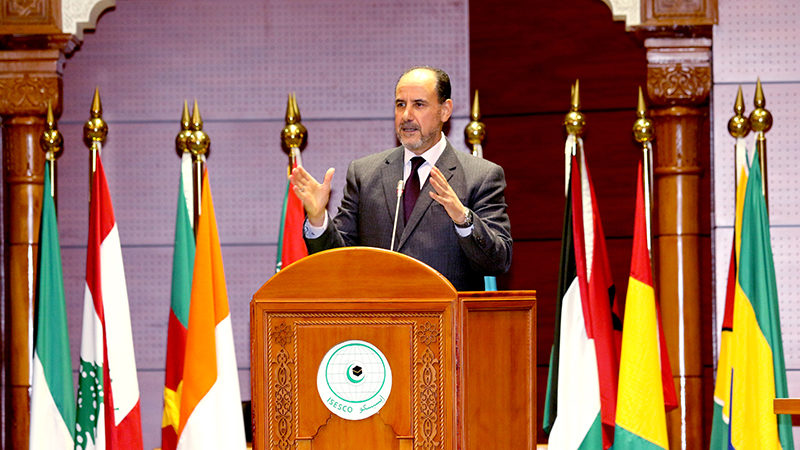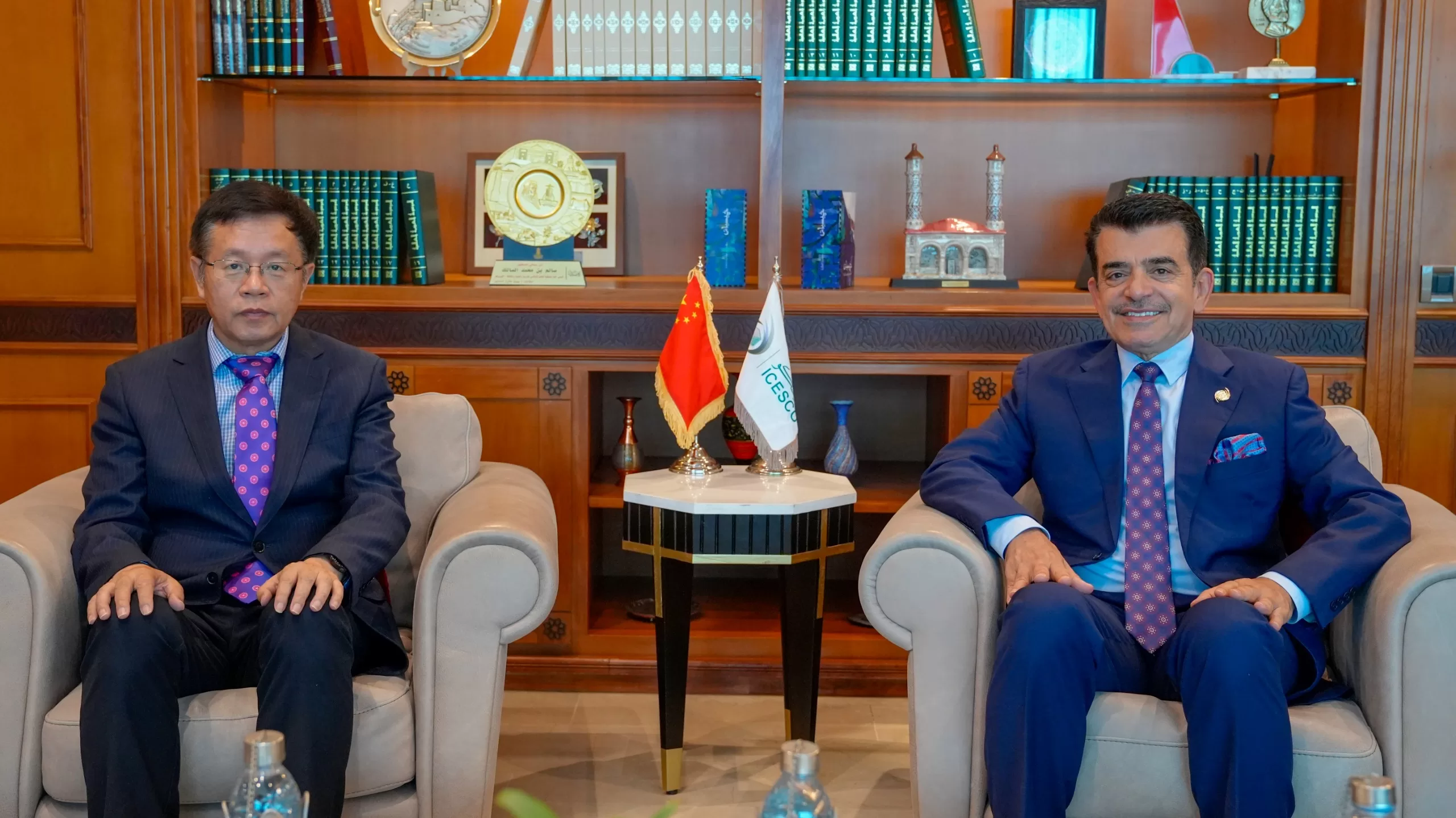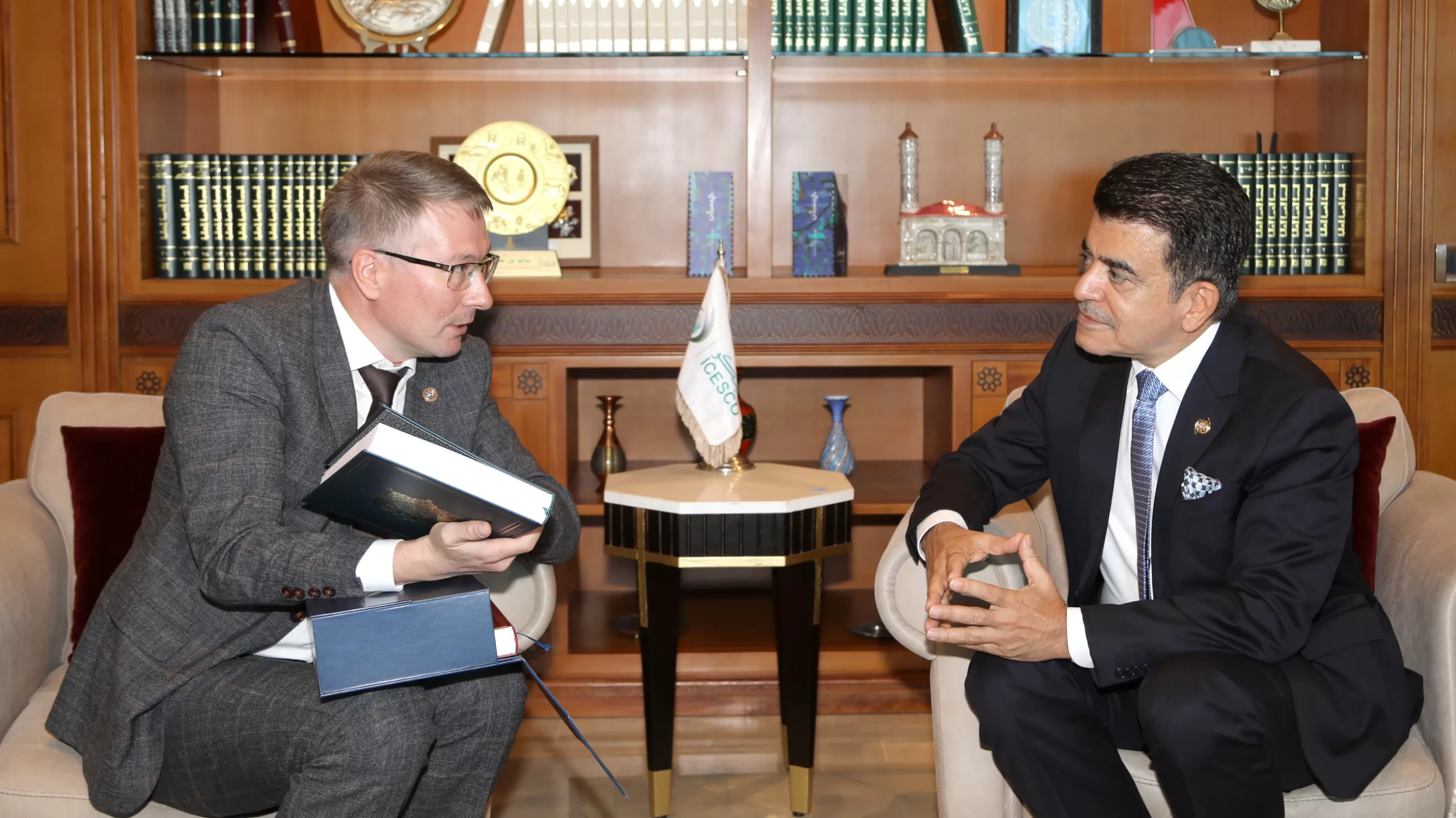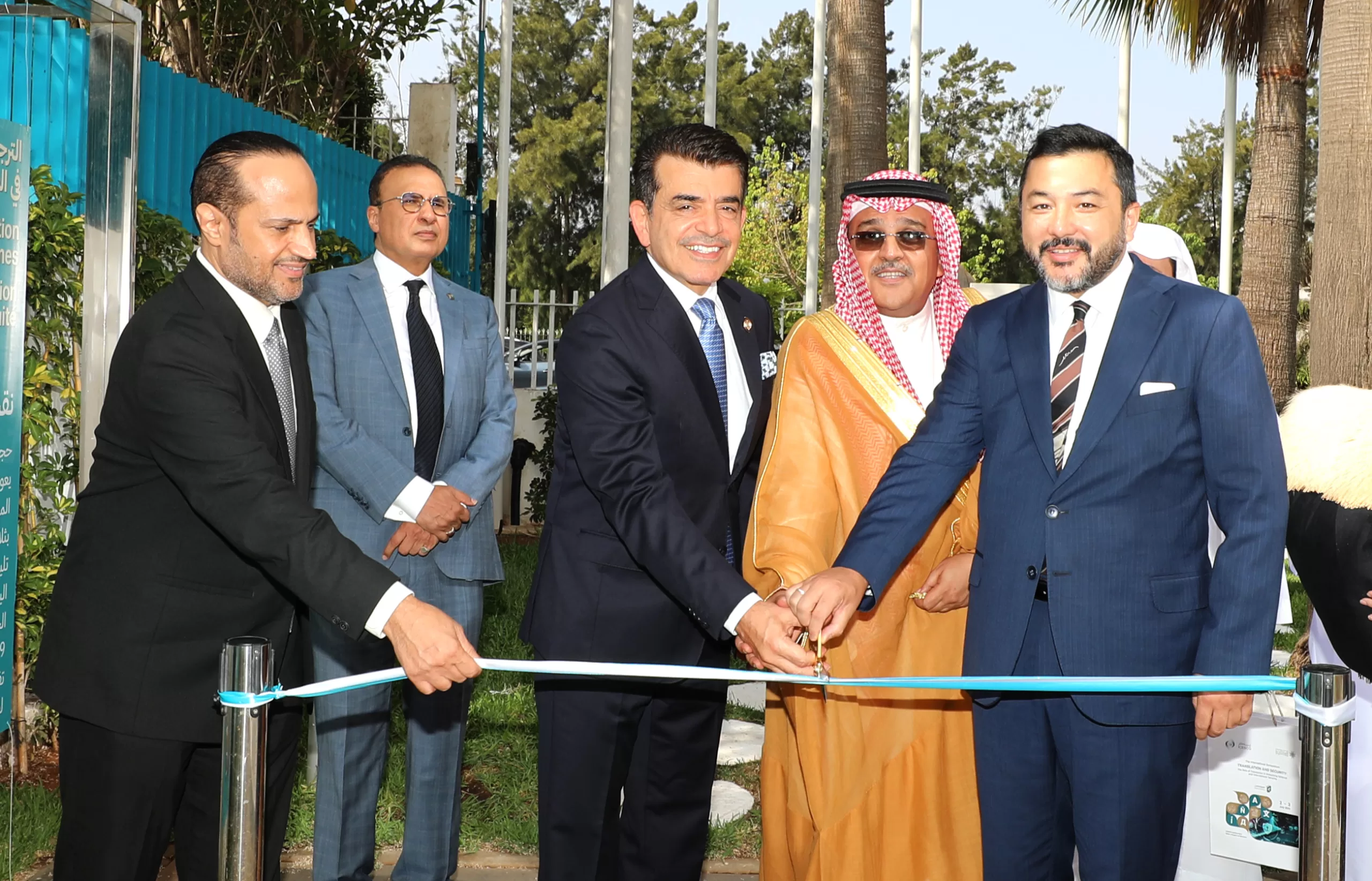
Dr. Abbadi at ISESCO Forum: serious scientific research is a requirement for monitoring the development of human rights

11 December 2019
** The global expenditure on armament amounts to US$17 trillion, just to protect humanity from itself
** Each human being has individual rights, including the right to privacy which is daily violated on Internet
The second gathering of ISESCO Cultural Forum, held yesterday at the headquarters of the Islamic Educational, Scientific and Cultural Organization (ISESCO), hosted Dr. Ahmed Abbadi, Secretary General of the Mohammadia League of Scholars, former member of the Moroccan National Council of Human Rights (CNDH), to deliver a lecture on the theme “From Human Rights to Humanity Right: Exploring contextual and knowledge requirements and approaching mechanisms”, on the occasion of Human Rights Day.

The Forum was largely attended by ambassadors, experts, specialists, media representatives, and students of universities and higher institutes in Rabat. The gathering started with an address by Dr. Salim M. AlMalik, ISESCO Director General, in which he welcomed Dr. Abbadi and the audience, and introduced the theme of the lecture. Afterwards, Dr. Abbadi delivered his lecture wherein he thanked ISESCO and its Director General for this invitation and stressed the importance of the lecture’s theme. He introduced his lecture with five basic principles “a) the human rights ‘dimension’ is inherent in human beings since their existence and from such dimension all legislations and procedures have been developed to organize human life and relations; b) there are many individual rights that should be framed within an attractive project; c) these rights entail duties; how can people, for instance, call for the achievement of sustainable development unless they fulfill their duties toward society and how can they demand peace while they cause strife among people”.

Moreover, Dr. Abbadi evoked the ‘fourth generation of human rights’, which takes into account the current system that considers the right to privacy as a human right. He also discussed the violations of the right to privacy on Internet, and the issues of genetic modifications with respect to the ethical dimension. He then went back on the five principles to present the fourth one which is the current global crises such as armament and fear crisis stating that the global expenditure on armament amounts to US$17 trillion, with US$2288 per capita on Earth; i.e. humanity incurs such massive expenditure to protect itself from itself.
Dr. Abbadi further explained that human rights did not start with the Magna Carta back in 1215; it rather began long ago quoting the saying of Umar ibn al-Khaṭtāb (may Allah be pleased with him): “How can you enslave people when their mothers bore them as free men?”. Each human being is free and this notion is established in all religions and might be the fifth principle.

Afterwards, Dr. Abbadi stated five phases for tackling individual human rights. “Serious scientific research is the gate to monitor the development of human rights and provide precise answers. Such research should adopt a scientific method and have special and adequate tools for the investigated field, namely human rights”, he stressed.
Dr. Abbadi also reaffirmed the importance of strengthening, supporting and assisting human rights institutions so as to full their duties. At the end of this lecture, Dr. Abbadi received and answered the audience’s questions.
Following this discussion, Dr. AlMalik honored Dr. Abbès Jirari, Dean of Moroccan Literature, guest of the Forum’s first gathering, and Dr. Abbadi with a certificate of appreciation and excellence, and a medal from ISESCO. Dr. AlMalik also presented Dr. Jirari with the first copy of Issue I of the Cultural Forum Gatherings series.




